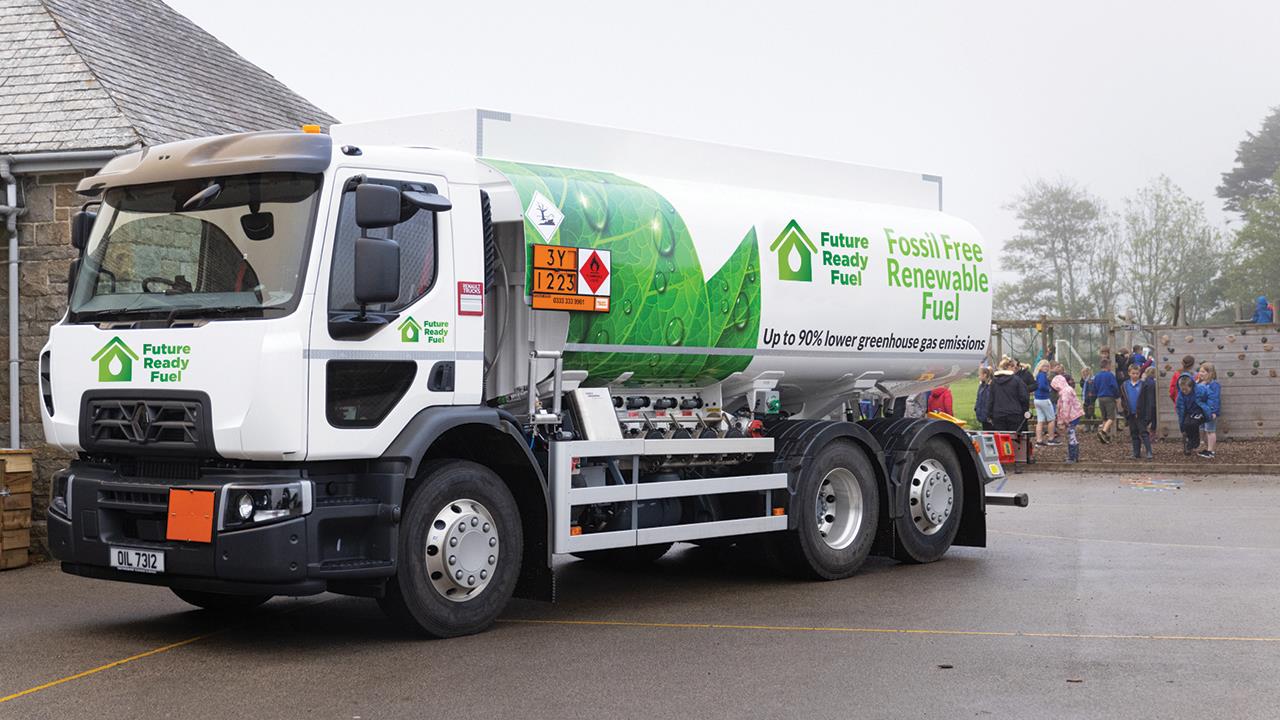

It makes little sense to install a heat pump in an inefficient building. Yet that’s exactly what the government is proposing in its Heat and Buildings Strategy.
The plan is to take a ‘heat pump-first’ approach and phase out the installation of new fossil fuel boilers in homes and businesses off the gas grid from the mid-2020s. Newbuild properties are included in the proposals, but existing homes with gas boilers won’t be targeted for another 10 years.
For modern properties, the deployment of heat pumps should be straightforward. However, the reality for many off-grid homes is that heat pumps present a real challenge. This is particularly true for the UK’s 1.7 million oil-heated homes, which tend to be older, larger, and not as well insulated as properties connected to the gas grid.
These concerns appear to have been underplayed in the Heat and Buildings Strategy, which states: “It would be feasible to install low temperature heat pumps in around 80% of fossil fuel heated off-gas grid homes, based on their current energy efficiency”.
In theory, this is correct – you can install a heat pump in virtually any building. The issue is whether it’s practical or cost effective to do so. For example, 65% of oil-heated homes are in the lowest EPC Bands of E, F, or G. It makes little sense to install heat pumps in these properties without addressing their poor insulation.
A survey by OFTEC of 229 rural heating businesses supported this view. It found that only 20% of the homes they serve are currently suited for a heat pump without energy efficiency improvements.
These improvements can be expensive. According to government research, the cost of upgrading a home from Band E to C is £12,300; from Band F and G this figure increases to £18,900. That’s without installation of the heat pump itself, which will add on average another £11,000. This will be unaffordable for the majority of households.
The government has set an ambition for the cost of heat pumps to fall between 25% and 50% by 2025, which seems very optimistic with inflation currently at over 6% and rising.
And yet the point remains, even if prices do fall by 50%, a typical air source heat pump will still cost at least twice as much as an oil or LPG boiler in 2026, when new plans are set to be introduced.
So, what does this change mean for rural householders, many of whom are unaware of the government’s proposals? As things stand, from 2026 off-grid consumers will be unable to simply replace a failed oil or LPG boiler with another boiler. In most cases they will instead be required to install a heat pump.
Finding space for a new hot water storage tank and larger radiators, securing significant financial support, and accommodating the lengthy installation process are just some of the challenges these consumers will face.
This scenario is not scaremongering, it’s the unfortunate reality. The government has proposed a test of ‘reasonable practicality’ for any boiler replacement happening after 2026, but they haven’t defined how this will work. Given the heat pump-first approach, it’s a fair assumption that installing a heat pump will be the expected norm for most homes.
Within the Heat and Buildings Strategy, the government emphasises that the cost of decarbonisation must fall fairly across society. But are these plans truly fair?
While mains gas boilers can be replaced until 2035, other fossil fuel boilers will be phased out nearly 10 years earlier. The homes with them are the most difficult to decarbonise but are now first in line. They risk facing the highest costs and the least certain outcomes as ‘guinea pigs’ under the government’s plans.
Heat pumps are an excellent technology, but a more inclusive approach is needed. Hydrotreated vegetable oil (HVO), a renewable liquid fuel, would provide a fairer, more cost effective heating solution for every off-grid home and bring about the decarbonisation change needed.
Conversion to HVO is straightforward, does not require an appliance change, and offers an immediate 88% reduction in carbon emissions. For many homes it is an ideal option.
Please consider supporting our Future Ready Fuel campaign and inviting your customers to do the same. It’s vital we get this option accepted by government to protect rural households and enable a fair transition to low carbon heating for all.
If you'd like to keep up-to-date with the latest developments in the heating and plumbing industry, why not subscribe to our weekly newsletters? Just click the button below and you can ensure all the latest industry news and new product information lands in your inbox every week.